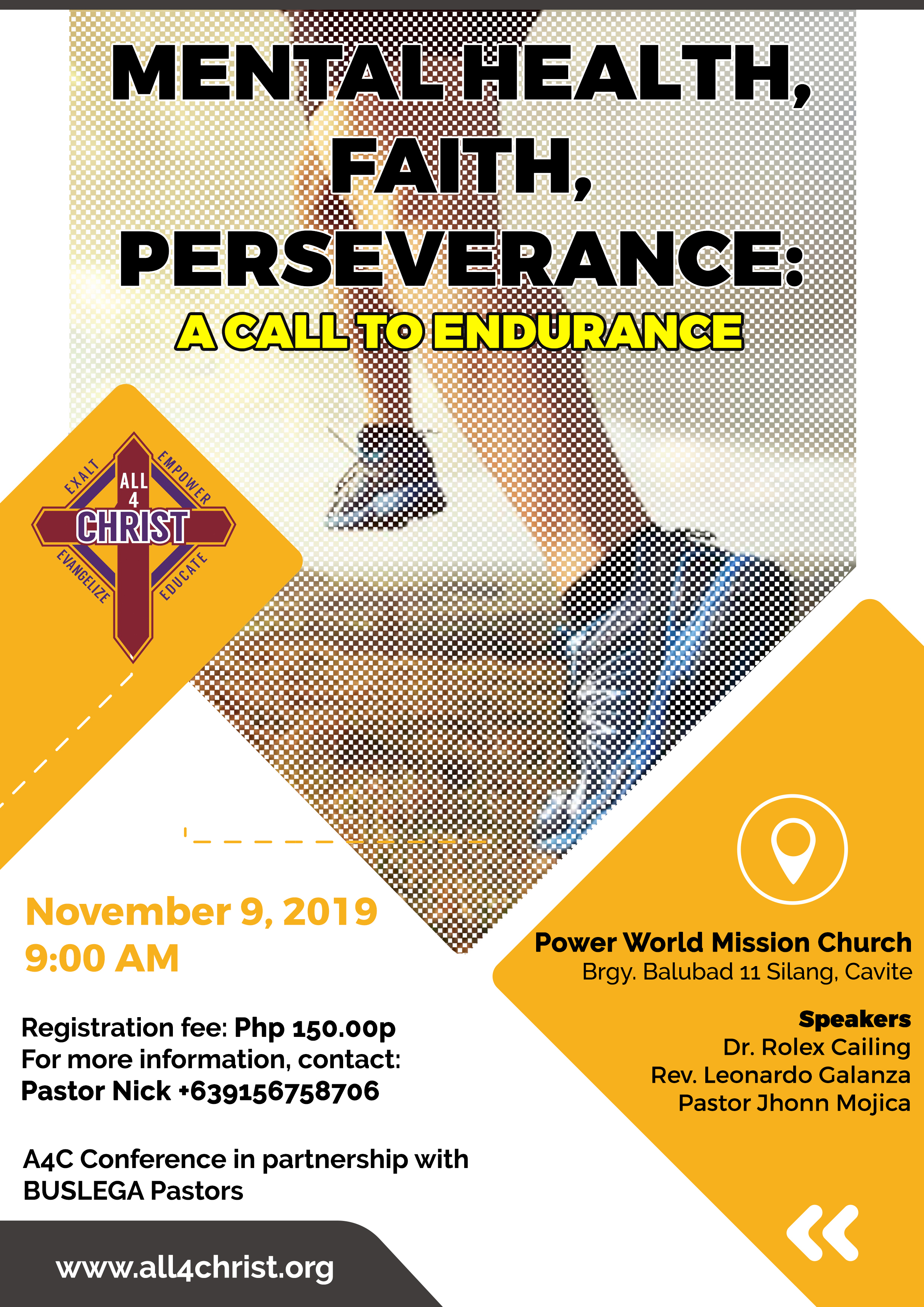Category: Uncategorized

Last month I visited a young man who graduated from Bible school last year. During his final year at school he was mentored by the pastor of a nearby newly planted church. While being mentored he also served as his mentor’s assistant. Sadly in July the pastor was removed from ministry for having an affair. He has since left his wife for the other woman who is pregnant with his baby.
The young man I visited is now pastoring this church and trying to keep it going. The church has a vibrant ministry among the homeless, drug addicts, prostitutes and runaways. It is located in a great location for this type of ministry. They are wealthy in relationships with people of all walks of life and businesses, including grocery stores, coffee shops, food pantries and bakeries which donate food and drinks to the church. The church provides a free lunch seven days a week along with an optional Bible study. Many people attend it. Their Sunday worship service, followed by a free meal, continues. For now. Due to the church’s monthly operating costs, and the previous pastor’s mismanagement of church funds, they may not be able to remain open. We are praying for funds to continue ministry in the same location, however, we are praying more so for God’s will to be clearly known. We want what He wants. This is a heavy load on the shoulders of my young pastor friend.
During my visit at the church, which was during a noisy lunchtime packed with people enjoying a hot meal, we talked about the church’s situation and future. My friend also shared his burdens. During a pause in our conversation I said to him, while looking him in the eyes, “Brother stay the course. That is my message for you today. Don’t quit. By God’s persevering grace, stay the course.” He lowered his head and with misty eyes responded “Thank you. I needed to hear that because I have an important meeting in a couple hours about the future of the church.” We closed our sharing time with heartfelt prayer trusting the Lord for his and the church’s future.
According to the New Oxford American Dictionary “stay the course” means “to keep going strongly to the end of a race or contest. To pursue a difficult task or activity to the end.” The book of James, in the New Testament, is my favorite book of the Bible because it is practical and “on the street” as I describe it. James 1:2-4 says “Count it all joy, my brothers, when you meet trials of various kinds, for you know that the testing of your faith produces steadfastness. And let steadfastness have its full effect, that you may be perfect and complete lacking nothing.” This is a call to understand suffering, trials, tests and persecution from the vantage point of confidence in God’s sovereignty. They can only be considered as pure joy when we realize that they are designed by our heavenly Father for a good purpose. They are tests of our faith given in order to develop our perseverance. In turn perseverance produces mature Christlike character in us (Romans 5:3).
John Wooden, the famous former basketball coach at the University of California at Los Angeles (UCLA) and a follower of Jesus Christ said “Be more concerned with your character than your reputation, because your character is what you really are, while your reputation is merely what others think you are.”
Brethren in Christ, when it comes to growing in Him and maturing in ministry to others, there are no shortcuts or other ways to develop godly character than what James tells us. My word to us today is “By God’s persevering grace, let’s stay the course. It is always too soon to quit.”

CHRIST THE LORD
It is sad when people deny Christ’s deity. The Bible repeatedly identifies Jesus as the Lord, reflecting the Old Testament’s personal name for God. The Hebrew has the letters YHWH (the Tetragrammaton). This is translated into English either as Jehovah or Yahweh, or more often as Lord.
“Jesus is Lord” was the earliest Christian confession (1 Cor 8:6; 1 Cor 12:3; Eph 4:4-5). It was one of many Church practices that recognized Christ within God’s identity.
Christians prayed to Christ, even as they prayed to the Father (see the prayer-wish in 2 Thess 2:16-17). They were baptized into the divine name, which included Father, Son, and Holy Spirit (Matt 28:19). They received prophecy from Christ as Lord (e.g., the Book of Revelation). And they sang hymns to Jesus (Eph 5:19; cp. Col 3:16), even as King David composed psalms to the LORD.
Confessing Jesus as Lord is essential for salvation (Rom 10:9-10). Let’s hold fast to this truth and live our lives in obedience to this amazing Lord.
CHRIST THE PROPHET
Hebrews 1:1-4 celebrates Christ’s triple supremacy: his comprehensive revelation of God, his powerful work of atonement, and his sovereign cosmic reign. These themes picture Jesus as prophet, priest, and king. As curious children (Matthew 11:25), let us learn about Christ in these three offices.
First, consider Christ the Prophet. The Westminster Catechism for Young Children asks, “How is Christ a prophet?” The child’s response is simple: “Because he teaches us the will of God.” Jesus is qualified to reveal God because he is God’s Son (Heb 1:2), imaging God’s own being, and sustaining the universe by his word (Heb 1:3). He is superior to the Old Testament prophets (Heb 1:1) and even the angels (Heb 1:4).
The Father provides this revelation to those who come as children, humble, and teachable. “Why do you need Christ as a prophet?” We should not cringe at the catechism’s answer: “Because I am ignorant!” Let’s trust Jesus, who is God’s Word (John 1:1), to teach us what we need to know about God.
Confessing Jesus as Lord is essential for salvation (Rom 10:9-10). Let’s hold fast to this truth and live our lives in obedience to this amazing Lord.
CHRIST THE PRIEST
Jesus is not only the final prophet; he is also our great high priest. How is Christ a priest? The child responds in the catechism, “Because he died for our sins and pleads with God for us.” This death for sins was an efficacious sacrifice (Heb 7:25-28). Christ is now seated at God’s right hand as our sympathetic priest (Heb 4:14-16).
“Why do I need Christ as a priest?” The child’s answer: “Because I am sinful.” The call of the gospel is not to those who are strong and proud, but to those who are humble. The warning of Hebrews 2:1 is for us: “Let us pay much closer attention!” We can only find forgiveness of sins in Christ, our only true priest.
Once forgiven, as God’s people, we are to function as a kingdom of priests, offering sacrifices of praise (Heb. 13:15; 1 Peter 2:5), the sacrifices of goodness and sharing with others (Heb. 13:16), and doing the priestly work of announcing to others forgiveness in Christ (1 Peter 2:9).


